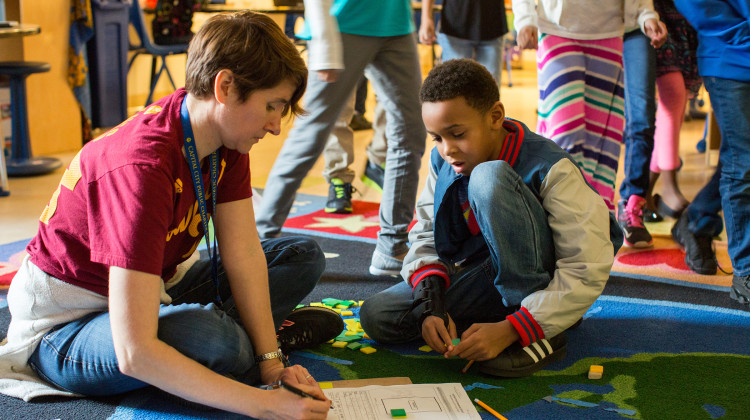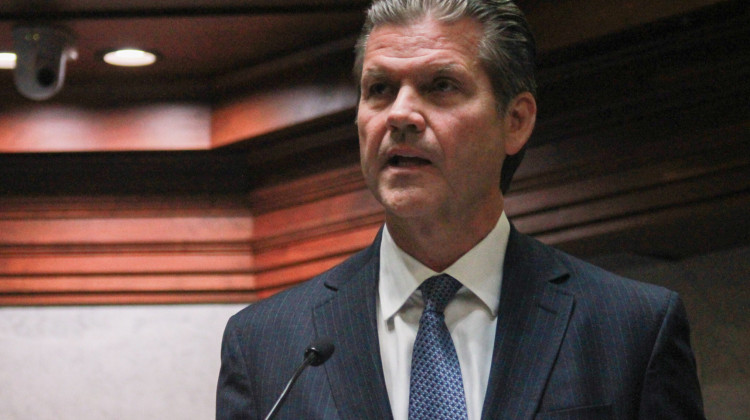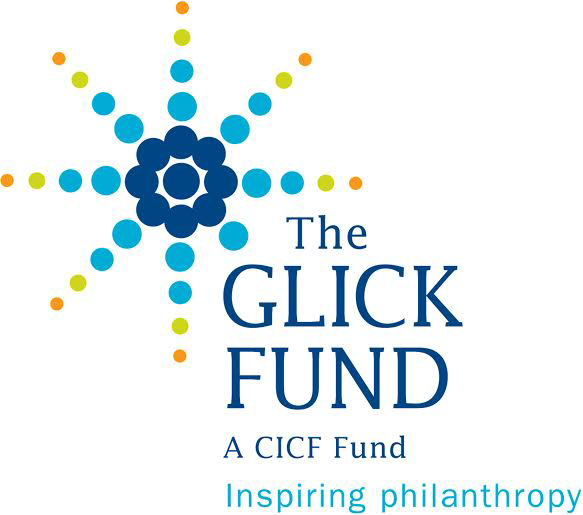
The IPS superintendent finalists are: Devon Horton, Aleesia Johnson, and Larry Young, Jr. (L-R) during the Tuesday, June 18, 2018 public interview.
Eric Weddle/WFYI NewsFinalists to be the next Indianapolis Public Schools superintendent pitched their vision on how to lead the state’s largest district Tuesday night during separate one-hour public interviews.
They each pledged to bring equity to schools, improve academics, strengthen community connections, steward a declining budget and attract minority educators.
Questions from the IPS Board of Commissioners sought to dig into how each candidate viewed the role of superintendent and asses their ability to improve a district where more than 60 percent of schools are rated D or F.
None of the three finalists have been a superintendent before. They were chosen after a five-month national search: Devon Horton, chief of schools at Jefferson County Public Schools in Louisville, KY; Aleesia Johnson, IPS interim superintendent; and Larry Young, Jr., an assistant superintendent at Pike Township Schools in Marion County.
Johnson publically announced her intention to run for the job weeks ago. Since then, former students, teachers and others who have voiced support for her. Horton and Young were first publically named as finalists just four days ago.
The next superintendent will succeed former superintendent Lewis Ferebee, who left IPS in December to led Washington, D.C. public schools.
Michal O’Connor, IPS Board president, said 112 questions from 66 community members were received as part of suggested questions for the candidates.
“I believe tonight you’ll be hearing from three future superintendents, although only one will be our IPS superintendent,” O’Connor said.
Each finalist offered a brief presentation to sketch their biography and present themselves as the right leader to take on the myriad of challenges facing the urban district. Board members then questioned each candidate for about 45 minutes.
Here’s a summary of what was discussed:
What is education equity mean to you?
Horton: "All of us have implicit biases. And it does not matter where you are from and what you believe in -- we all have them. So we have to begin to help our teachers and our leaders in central office begin to see things just a little bit different... Are we creating practices and protocols where certain groups of students maybe have an advantage or disadvantage of how the policy is designed."
Johnson: ”It is important that we call it racial equity mindset. If we just say equity, we can lose what is at the heart of that- it is about race and we have to name that and have those hard conversations. If we deal with all the racial inequities, we will see improvement.”
Young: "Every school and every classroom does not have the exact same need. But if Larry Young lives on this street and therefore I attend this school, that's not my fault. I deserve to have the exact same high-level education"
How do you view IPS collaborations with charter organizations and creating innovation schools?
Horton: "Three of the ways (innovation schools are created) are doing really well: charter, either new or high performing schools that have the right leadership that opt to transition. But the area in which its not doing so well is the restarts ... when we are talking about our most challenging schools, I believe there is more skin in the game the district needs to put in and take ownership of that."
Johnson: “There is not just one way to address schools not doing well...Ultimately, I want us to have a high-quality school in every single neighborhood in our district,"
Young: "Whether it's charter or innovation, I'm not stuck on that … I want to say for the record I'm not pro- nor am I anti- charter or innovation schools. I'm about quality learning experiences for children."
How would you attract and retain talented minority principals and teachers?
Johnson: "Great people are generally drawn to great people. So, first of all, what are the stories being told about the experience that focus have at IPS? Who are our champions that can go out, not just on the HR recruiting team, but our teacher and principals can go out and talk about why IPS is a great place to work ... Compensation matters. People need to know they can take care of their families if they work in the district."
Young: "(In Pike Township) principals have the autonomy to design professional development however they see fit. Our leadership academy is for teachers who want to move into leadership positions. Experts come in and share... About 90 percent of our principals come in through the leadership academy."
What is your stance on teacher unions?
Horton: "Unions are so important to this work. Unions protect good teachers from bad administrations -- sometimes other way around too. Unions are valuable and you have to respect where they're coming from. In the end, I think unions want what's best for kids."
Johnson: "Ultimately there needs to be a positive relationship. it doesn't do our district any good or our union any good if we are turning over teachers at a high rate"
Young: "I was a union representative in my building as a classroom teacher. I definitely see value in teachers having a voice. It is critically important."
What is your biggest weakness?
Horton: “I’m a Chicago guy, big city guy. They’d probably say I move to fast...Knowing what education did for me and my family, I just get charged, excited. Pace yourself, because the work's still going to be there.
Johnson: "One thing I am working on is the triangulation of information. We move so fast It is very easy to be misaligned.
Young: “My weakness is also my strength, and that is just high expectations. I am just super reflective ... I use it to drive me, it's my passion, to improve and get better."
Final comments
Horton, referencing his recent interviews for two other school leader jobs in the past year: “I'm not chasing the next big thing. I want to be a superintendent."
Johnson: “It has been an honor for me to serve this district, being the superintendent of IPS, nothing would make me prouder. I ask you for the opportunity to keep going, because I know we can do it."
Young: "We have to speak passionately about IPS. We have to have excellent schools and we need ambassadors to go out talk about the great things happening in our schools."
Contact WFYI education reporter Eric Weddle at eweddle@wfyi.org or call (317) 614-0470. Follow on Twitter: @ericweddle.
 DONATE
DONATE








 Support WFYI. We can't do it without you.
Support WFYI. We can't do it without you.